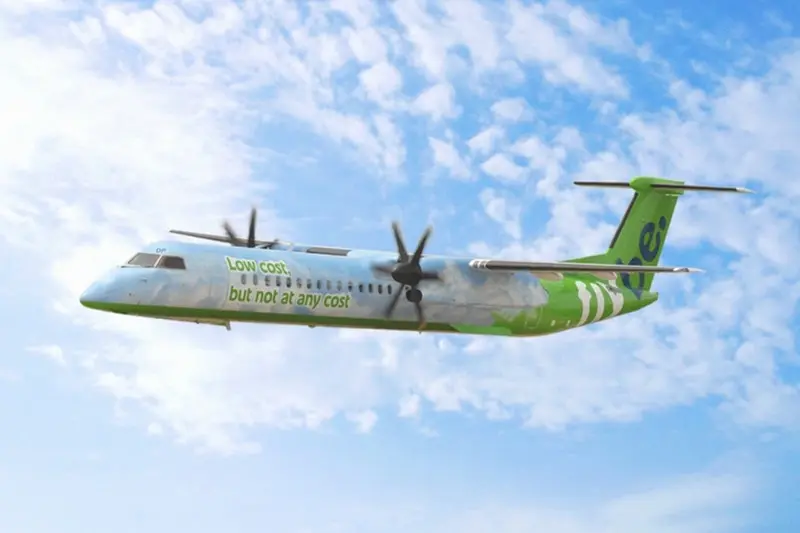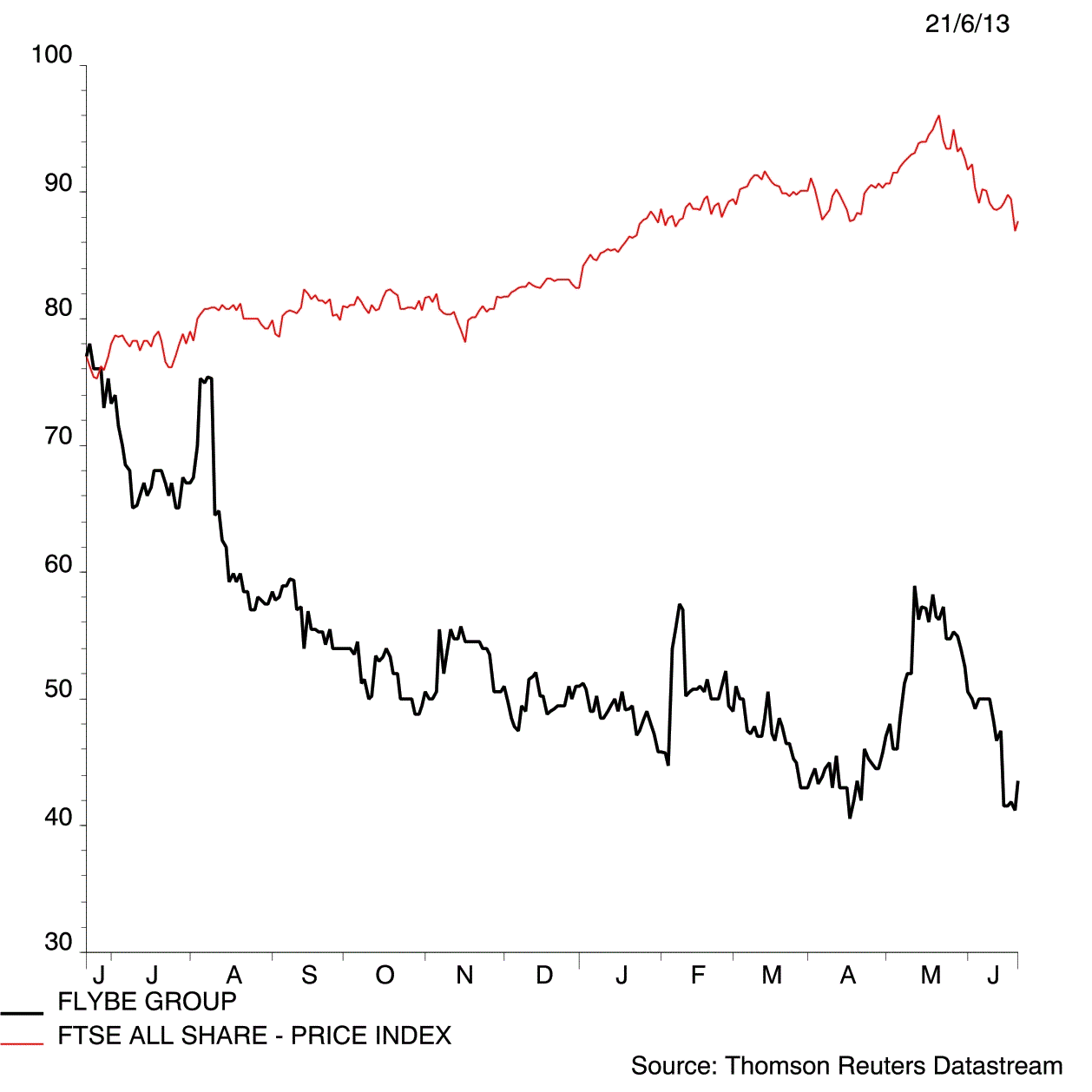
A confident statement by Flybe (FLYB) that it can revive the troubled airline has sent its shares up 4.2% to 43p. This is despite a near-sevenfold increase in pre-tax losses unveiled in today's full-year results.
The market has clearly focussed on Flybe exceeding its cost-reduction targets and being on track to deliver £50 million in savings from 2014/15 onwards.
The financial results on their own make for difficult reading. Pre-tax losses hit £40.7 million, partially a result of declining passenger numbers and rising fuel costs. Restructuring costs accounted for £12.8 million. Management expect to incur further restructuring and surplus capacity costs of about £5 million in 2013/14, taking the total costs of delivering the turnaround to some £18 million.
The group's 'Deliver and Future Direction' plan unveiled in January contained some ambitious targets. The group set itself 'Key Performance Indicators' with targets based on a metric of profit per seat in sterling for Flybe UK; with Flybe Outsourcing Solutions benchmarked against profit per contract flying aircraft: denominated in euros.
Based on these projections, Flybe UK is expected to break even in 2013/14 before showing a profit per seat of 60p in 2014/15 rising to £3.00 the next year. Flybe Outsourcing Solutions - which includes Flybe Finland; the group?s 60:40 joint venture with Finnair - has been set a target of profit per contract flying aircraft in the order of ?200,000 in 2013/14, rising to ?300,000 the following year.
This set of results revealed that Flybe UK's passenger revenue per seat was broadly flat at £48.84 while operating costs per seat increased by 3.6% from £50.75 to £52.58 which suggests that the group may yet struggle to deliver a breakeven on that profit per seat metric. Flybe UK showed a loss before tax this year of £28.9 million while the outsourcing solutions division showed more modest losses of £8.2 million.
While the group continues to struggle to reach profitability, there's no doubting Flybe's commitment to reducing overheads. In January, the group said they expected to make cumulative cost reductions in the order of £35 million up to 2014/15, with 300 redundancies or 10% of the UK staff pencilled in, fuel efficiency and outsourcing were also expected to feature in the cost-cutting drive.
Flybe has already beaten that headline cost-reduction figure. 'Flybe has exceeded its target of taking out £25 million from its cost base during 2013/14 and will deliver around £40m in savings in this current financial year, expected to rise to £50 million annualised savings from 2014/15 onwards. In the last few months we have streamlined the business, reducing UK-based headcount by more than 20%. We have also made major progress in reducing the cost of our supplier base,' said chief executive officer Jim French.
Much of the group's turnaround plan is expected to be financed by the proposed sale of its Gatwick slots to Easyjet (EZJ) in a £20 million deal expected to complete in July. Flybe is selling the 25 pairs of arrival and departure slots which will see it cease all flights from Gatwick, where the group currently carries more than half a million passengers to destinations around the UK.
But even that deal may yet be subject to regulatory scrutiny. It was reported on 20 June that business secretary Vince Cable had given assurances to John Thurso, the Liberal Democrat MP for Caithness, Sutherland and Easter Ross that he would be taking a closer look at the Gatwick deal.
Thurso is pushing to have the deal referred to the Competition Commission and has urged his senior colleague to investigate the deal on several grounds; most notably for the loss of competition on the route and the potentially-negative impact it could have on economic growth in the Highlands.
Regulatory vicissitudes were also evident earlier in the year when the European Commission scuppered a deal that could have seen Flybe entering the Irish market.
Back in early February, Flybe looked set to profit from a deal with Ryanair (RYA) to acquire half of Aer Lingus's (AERL) short-haul business. This was to be part of a package of remedies that Ryanair had submitted to the European Commission to win approval for a takeover of Aer Lingus. It was reported on 27 February the European Commission had prohibited the deal, dismissing Ryanair?s proposed remedies as 'inadequate'.





